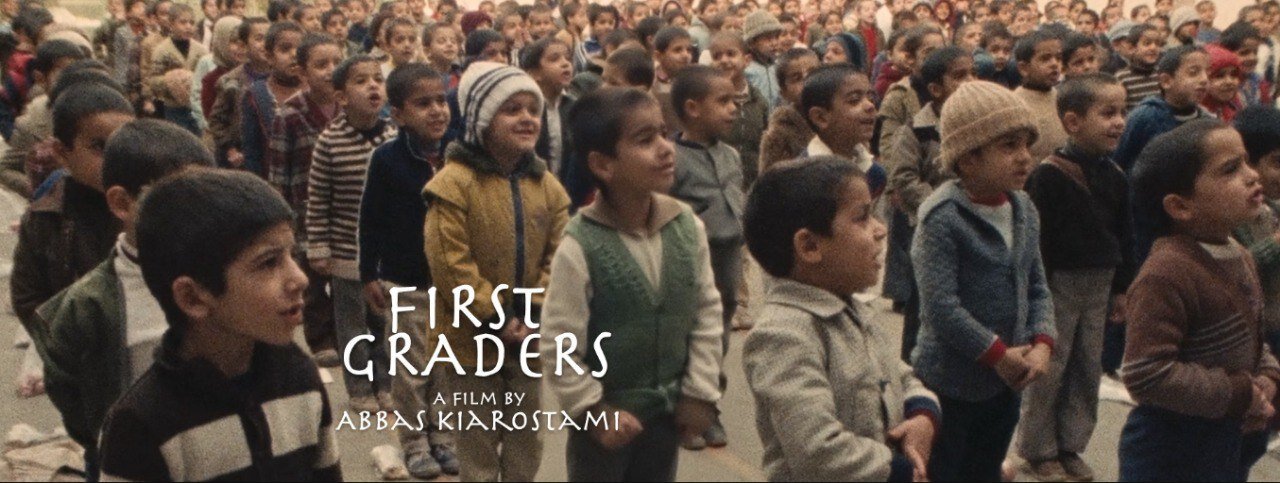TMoCA cinematheque to screen Kiarostami’s documentary “First Graders”

TEHRAN-The cinematheque of the Tehran Museum of Contemporary Art (TMoCA) in Tehran will show “First Graders,” a documentary made by the renowned filmmaker Abbas Kiarostami on Sunday.
In the 1984 documentary feature film, a concealed camera follows a group of first graders at a boys’ school in Tehran. While some pupils chant in the playground, others are summoned to the superintendent’s office—where the supervisor deals with latecomers and troublemakers by interviewing the innocent boys and offering wise advice, ISNA reported.
The 85-minute movie shows numerous funny and moving interviews of many different young pupils for questions of discipline. The superintendent is not severe, but clever and fair. He teaches loyalty, fellowship and righteousness to the boys. Besides the interviews, scenes of this school’s quotidian life are seen as well.
Inspired by his work at the Institute for the Intellectual Development of Children and Young Adult (IIDCYA) and his own sons’ schooling, the first of Kiarostami’s two documentary features about education looks in on a schoolyard of chanting, playful boys but mainly transpires in the office of the superintendent who has to deal with latecomers and discipline problems. The boys’ personalities can be seen being formed in their first encounters with authorities and peers outside the home.
“First Graders” is a fascinating transitional work in Kiarostami’s career. Although it is, in many ways, a precursor to both “Where is the Friend’s House?” (1987) and “Homework” (1989), it is also strongly connected to the series of short documentaries the director made in the wake of the 1979 Islamic Revolution. “First Graders” focuses on the experiences, perceptions and growing social awareness of male schoolchildren leaving the “safe harbor” of early childhood. It also contains a characteristic preoccupation with paternal authority figures who are required to weigh up and balance the merits of punishment and reward, society and individual.
Made under the auspices of the IIDCYA, as were many of Kiarostami’s films in the 1970s and 1980s, “First Graders” is more straightforward and less self-conscious than such celebrated subsequent movies as “Homework” and “Close-Up” (1990).
Unlike in “Homework,” Kiarostami has no direct presence or voice in the onscreen world of “First Graders,” the film mostly constructed out of the alternation between footage of the mass assemblies conducted in the schoolyard and the interrogation of a seemingly endless parade of minor offenders lined up against the stark wall of the principal’s office.
On a surface level, “First Graders” appears to be a more objective type of documentary, with intermittent passages showing particular students leaving the school or, for example, a plastic bag drifting on the breeze, along with its apparent broader focus on “process”, drawing it closer to the institutionally-focused work of a filmmaker like Frederick Wiseman. But it also has a much narrower range than many films in this tradition, providing a characteristically repetitive, rhythmic and carefully framed window on a limited set of situations, questions and repeated observations.
Like other works by Kiarostami, the film does make us question the relationships between reality and fiction, testimony and storytelling, childhood and adult life, authority and freedom of expression.
Kiarostami (1940–2016) was a film director, screenwriter, poet, photographer, and film producer. An active filmmaker from 1970, he had been involved in the production of over 40 films, including features, shorts and documentaries. Kiarostami attained critical acclaim for directing “Taste of Cherry” (1997), which was awarded the Palme d'Or at the Cannes Film Festival that year, as well as “Close-Up” (1990) and “The Wind Will Carry Us” (1999).
SS/
